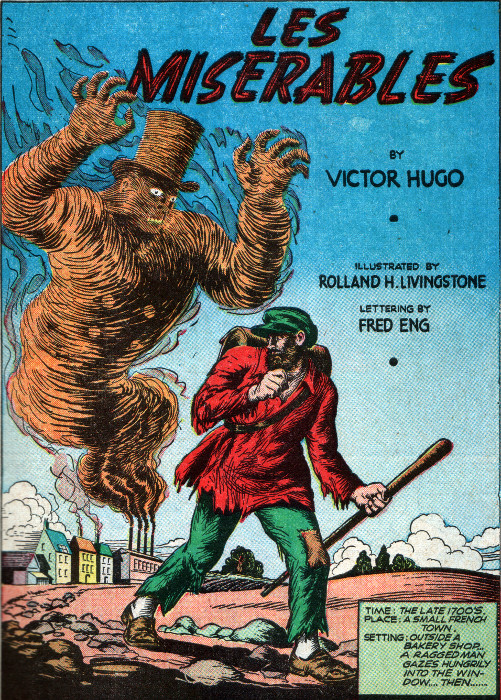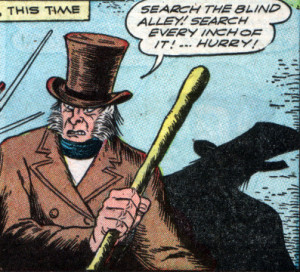Les Misérables: Classics Illustrated’s Original Comic Book (Review)
The Les Misérables comic book that you can read digitally isn’t the first adaptation Classics Illustrated did. It’s a completely new adaptation done in 1961 as the older art style had fallen out of favor.
 I found a copy of the original 1943 adaptation on eBay, and I’m actually quite impressed. The storytelling works a lot better than the later adaptation for one simple reason: Instead of trying to present serious literature, it simply tells an adventure story. The themes are still there, but in the background instead of in your face.
I found a copy of the original 1943 adaptation on eBay, and I’m actually quite impressed. The storytelling works a lot better than the later adaptation for one simple reason: Instead of trying to present serious literature, it simply tells an adventure story. The themes are still there, but in the background instead of in your face.
This does mean that some episodes, like the rescue on board the ship Orion, get a lot more attention than they probably need. But if you’re going to focus exclusively on Valjean, this approach makes much better use of the medium. Besides, those scenes include the rebellion, which I’ve noticed seems to get shorted in a lot of adaptations.
The comic’s writer isn’t credited (only Victor Hugo), but an article from the later edition names her as Evelyn Goodman. Her script uses narration sparingly, allowing the visuals and dialog to tell the story. It’s less wordy than a Silver Age superhero book, and in some ways feels more modern. It’s also a lot more cohesive a narrative than the later version, which is full of odd gaps in the structure.
I can see that Rolland Livingstone’s art would look outdated a generation later, but from 70 years on, it’s a great example of Golden Age comic book art. I was caught right away by the splash page, in which factory smoke forms the spectral image of Inspector Javert. His art is detailed where it serves the story, sparse where it doesn’t, and never static.
 Though Javert’s perpetual sneer does get old after a while. Seriously, he has one expression.
Though Javert’s perpetual sneer does get old after a while. Seriously, he has one expression.
Unfortunately, the story just stops after Javert’s suicide (like the Neeson/Rush movie). I suppose it’s partly the result of focusing on the adventure – an old man deciding he doesn’t want to live anymore makes for good drama and tragedy, but isn’t exactly rip-roaring.
And Fantine’s plight is reduced to her getting into a fight when she’s fired. Obviously a 1940s comic book aimed at kids isn’t going to tell you about her ultimate career path, but even the 1937 radio play managed to convey her descent into poverty without getting specific.
Overall, though, it’s a pity that this version is out of print. Digital comics have made the newer edition easy to find and buy, but the fact that I could find this one at all is a testament to the value of physical media and the collector’s market.